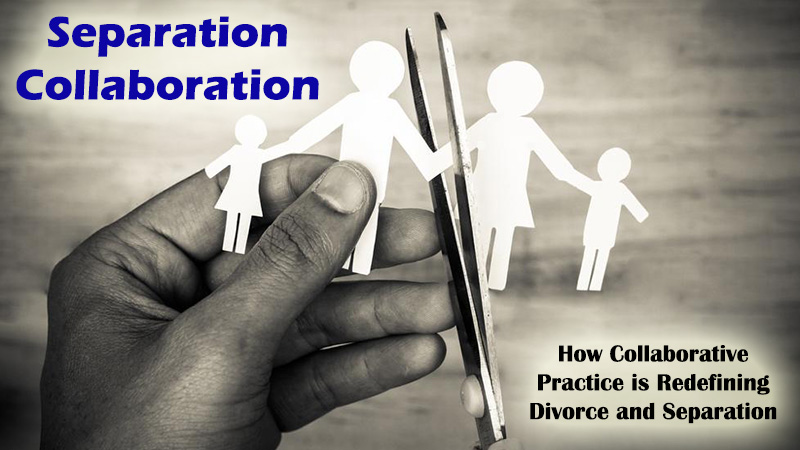Separation Collaboration – How Collaborative Practice is Redefining Divorce and Separation
Mention the word “divorce” and most people will immediately envisage something akin to a courtroom scene out of Kramer vs Kramer, the iconic divorce film. The truth, however, is that the vast majority of separations and divorces settle outside of the courts – around 95% of them, in fact. Courts are expensive, messy and emotionally draining places to end a relationship and rarely deliver a result with which anybody is happy. Fortunately, there are numerous alternatives for couples that are willing to seek a better path towards closure and healing.

Collaborative Practice is a format that is growing in popularity due to its emphasis on working together and minimizing conflict. Here are some key facts that you should know if you, unfortunately, find yourself considering your options:
What is it?
Collaborative practice is a method in which former partners set their own agenda for what needs to be worked through and engage with each other in the most civilized way possible. A friend of mine, a family lawyer in Melbourne, Australia describes it as “civilized separation” for that very reason. The primary aim is to take the focus away from lawyers and back in the hands of the former couple so that they have the support and guidance to work through the key issues themselves, without destroying any remaining goodwill, or leaving them in financial ruin.
Who is Involved?
While family lawyers will typically facilitate the process, the former partners are encouraged to create their own support teams that reflect their needs and provide them with the best advice and advocacy possible. In doing this, lawyers can frequently become quite secondary to the process. Partners may choose to bring psychologists, child psychologists, financial advisors or other parties with them and these will in many cases become the most important members of the team.
How does it work?
The first thing that anyone will notice about collaborative practice is the absence of aggressive letters, emails and phone calls between opposing lawyers. These do little to resolve issues and mainly contribute to an increase in tension, conflict and cost. Collaborative practice focuses on pursuing peaceful solutions, rather than taking positions. Support teams will help each partner plan for sessions, identify key areas for discussion and devise an agenda and approach with mutually fair and peaceful solutions in mind. The teams will then support the couple as they meet to discuss matters in person over as many sessions as required.
What are the Advantages?
- Cost: Agreements made through courts, mediation or other formats can be cripplingly expensive. Agreements reached via collaborative practice typically involve a fraction of the cost.
- Stress: With so much support and all parties to the process focused on working amicably together to reach a peaceful resolution, the emotional and psychological toll is drastically lighter.
- Time: With no court dates or legal proceedings to wait for, the process can often be satisfactorily concluded in a very reasonable timeframe, allowing the separated couple of move on with the rest of lives as quickly as possible.
- Low Conflict: Especially where children are involved, the former couple will likely play some kind of role in each other’s lives for years to come. By avoiding conflict wherever possible, the process gives them the best chance possible of maintaining healthy communication into the future so that issues that arise over time can be dealt with quickly and calmly.
Separation and divorce are trying experiences for any couple. Careful consideration of low-conflict options such as collaborative practice can play a huge part in reducing the negativity inherent in this difficult part of life and help all parties to work towards a brighter future.



